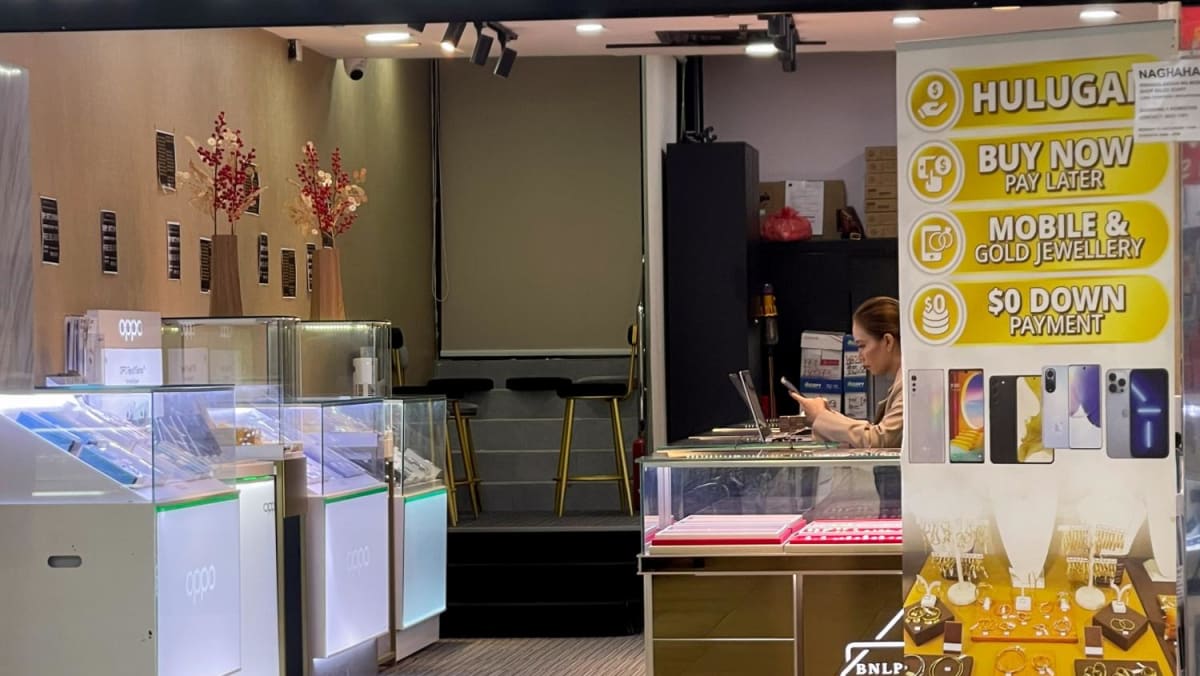SINGAPORE — The glint of gold is apparent around Lucky Plaza, where a total of 39 jewellery shops span the Orchard Road mall’s seven storeys.
Some of these storefronts are emblazoned with signs stating “$0 down payment”, along with the word “hulugan” — or “instalment” in Tagalog, the Filipino language.
In these shops, Singapore’s foreign domestic workers (FDWs) can purchase gold jewellery through instalment plans, taking them home without paying a single cent upfront.
Except some do not take them home. They pawn them immediately at one of Lucky Plaza’s many pawn shops for instant cash.
According to FDWs that TODAY spoke to at the mall over several days, this is a widely known method of obtaining a much-needed “loan” without going through licensed or illegal moneylenders, which began in pre-Covid times.
While interviewees said that such instalment plans can be a boon for them due to their low wages, the downside is the prospect of being unable to pay off monies owed to these shops — which can charge customers high interest for this payment method.
A 49-year-old Filipino maid who bought a piece of gold jewellery, who wanted to be known only as Ms Carlina, said that one store had added about S$100 in interest per gram of gold.
For an item containing 3g of gold, a worker would pay S$300 on top of its price.
Ms Cyndelene Miranda, a 48-year-old Filipino who has been working as a domestic helper in Singapore for 13 years, said that around three in 10 of her friends have struggled to pay back what they owe these jewellery shops in instalments.
When this happens, Ms Miranda said it is not uncommon for them to buy another piece of jewellery — again on instalments — and pawn it in order to repay their original loan, thereby repeating the cycle of debt.
When asked why this practice of pawning gold that has not been fully paid for was a popular avenue for raising money, Ms Miranda said that domestic helpers in Singapore are often under pressure to provide for their families back home.
They also find it difficult to turn down their family members’ requests for money, she said, regardless of what the money is used for.
Ms Aini, 48, an Indonesian domestic helper that has worked in Singapore for nine years, said that she recently pawned a piece of gold jewellery she had previously bought on instalments in order to pay for her family’s expenses in Bintan.
She asked that her real name not be published as she feared reprisal from her employer.
For her, the appeal of purchasing gold jewellery lies in the fact that she would get to safekeep an item of value, even wear it, and subsequently pawn the item if she needed money urgently.
Migrant workers’ rights group Transient Workers Count Too (TWC2) added that maids typically receive “no or little pay” during their initial months of work in Singapore as their salary goes towards paying off placement costs levied by employment agents.
“The financial stress that low-wage migrant workers in general are under may also cause them to act irrationally out of desperation,” they said.
